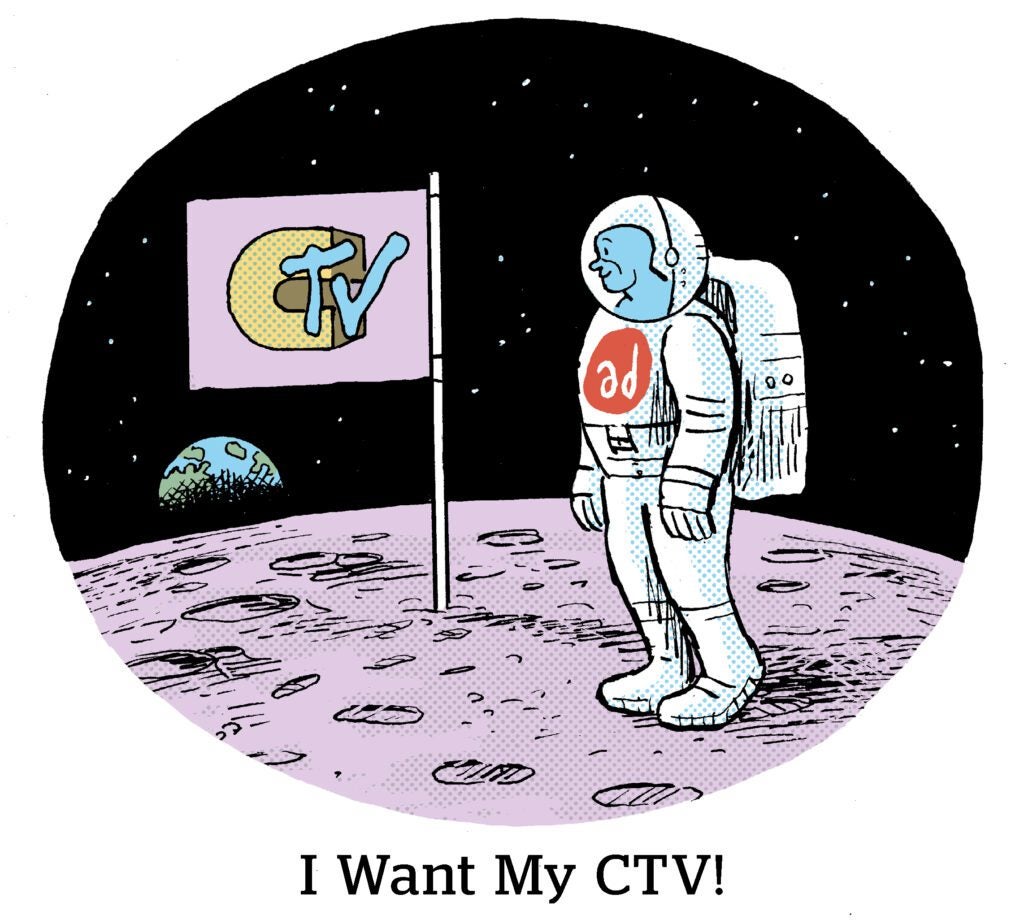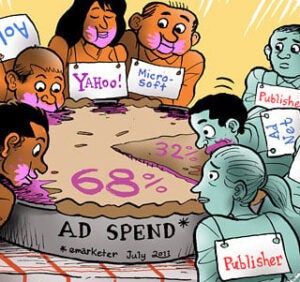Here’s today’s AdExchanger.com news round-up… Want it by email? Sign up here.
Upfronting The Bill
Upfront negotiations might take longer than normal this year, Digiday reports.
It’s a buyer’s market, and buyers want lower CPMs.
Going into negotiations, streamers were asking for CPMs that were “obscenely out of touch with the marketplace,” one buyer says. Netflix and Disney+ were charging roughly $50 CPMs as of late last year, and while that’s lower than 2022 (when Netflix was charging $60 CPMs), it’s still pretty high.
Buyers are particularly irritated because these sky-high prices include premiums and fees that publishers are tacking onto the asking price. Some platforms are charging premiums as high as 30% for a programmatic buy that includes targeting, which is exactly what advertisers are asking for, one buyer says.
Advertisers, as a result, have spent the negotiation period thus far haggling with streamers over their prices. Disney conceded and reduced prices by as much as 10%-15%, and NBCUniversal is lowering CPMs to compete with Disney. Netflix, Prime Video and Warner Bros. Discovery, meanwhile, refuse to give in.
It may take until August to get the final word on upfront deals.
Regulators, Mount Up
Not even six months have passed since the EU’s new digital regulations went into full effect, but Meta is already in hot water, WSJ reports.
First, a refresher: The Digital Markets Act requires “gatekeeper” companies – Alphabet, Amazon, Apple, Booking, ByteDance, Meta and Microsoft – to comply with tougher rules related to their “core platform services.” Notably, they cannot track digital activity outside those services “for the purpose of targeted advertising” without explicit user consent.
In an attempted workaround, Meta proposed a choice: Either users pay 10 euros per month for ad-free Facebook and Instagram access with no data collection or continue with the free service but with consent to use data for ad purposes.
But that proposal isn’t cutting it, according to the EU, which alleges that Meta’s policy solution unfairly forces users to consent without providing a “less personalized but equivalent version.”
Regulators must now determine whether this “pay or consent” model constitutes a legitimate DMA violation. The investigation should conclude in March.
Acquisitions Incorporated
Ad tech mergers and acquisitions are finally back on the menu this year. According to Luma Partners, the number of ad tech transactions have nearly doubled in the first half of 2024 compared to 2023 (which, as we all remember, was pretty “weak sauce”).
But they’re not attracting the same deep-pocketed buyers they used to, Adweek reports.
Granted, current deals might still feel “unattractive” and “unglamorous” to some – far from the overactive landscape of 2021, when many private equity firms first fixed their eyes (and wallets) toward ad tech. The buyer pool is small these days, too, partly because big players like Google and Meta are tied up in federal antitrust concerns and partly because other large companies would rather consolidate their own portfolios than take on new assets.
It’s not all doom and gloom, of course. Just look at LiveRamp’s acquisition of Habu and Walmart’s acquisition of Vizio, which represent significant expansions for both firms. But while things have improved since 2023, it’s still very much a rebuilding year for the industry as a whole.
But Wait, There’s More!
Google faces intensifying pressure to revamp the Privacy Sandbox. [Digiday]
And speaking of the Sandbox, here’s a breakdown of how the testing is going, in plain English (h/t Ari Paparo). [blog]
Netflix and Prime Video are reviving TV show sales. [NYT]
You’re Hired!
Jonathan Stringfield becomes VP of global revenue and business planning at Microsoft Advertising. [LinkedIn]
Former Xbox and Netflix exec Jerret West joins Roblox as CMO. [Brand Innovators]
Tara Walpert Levy, VP of YouTube across the Americas, has been appointed chair of the Ad Council’s board of directors. [release]

















